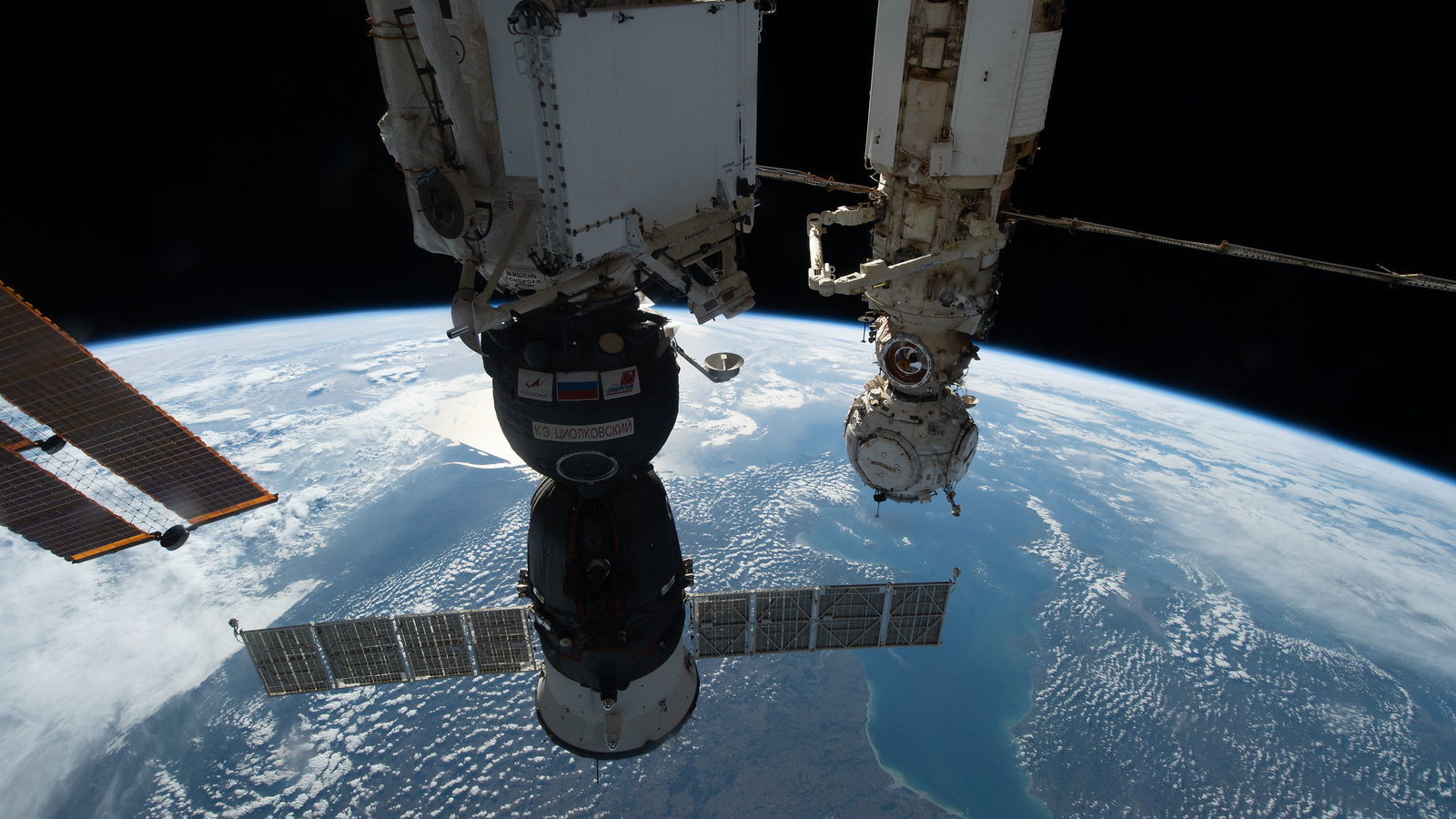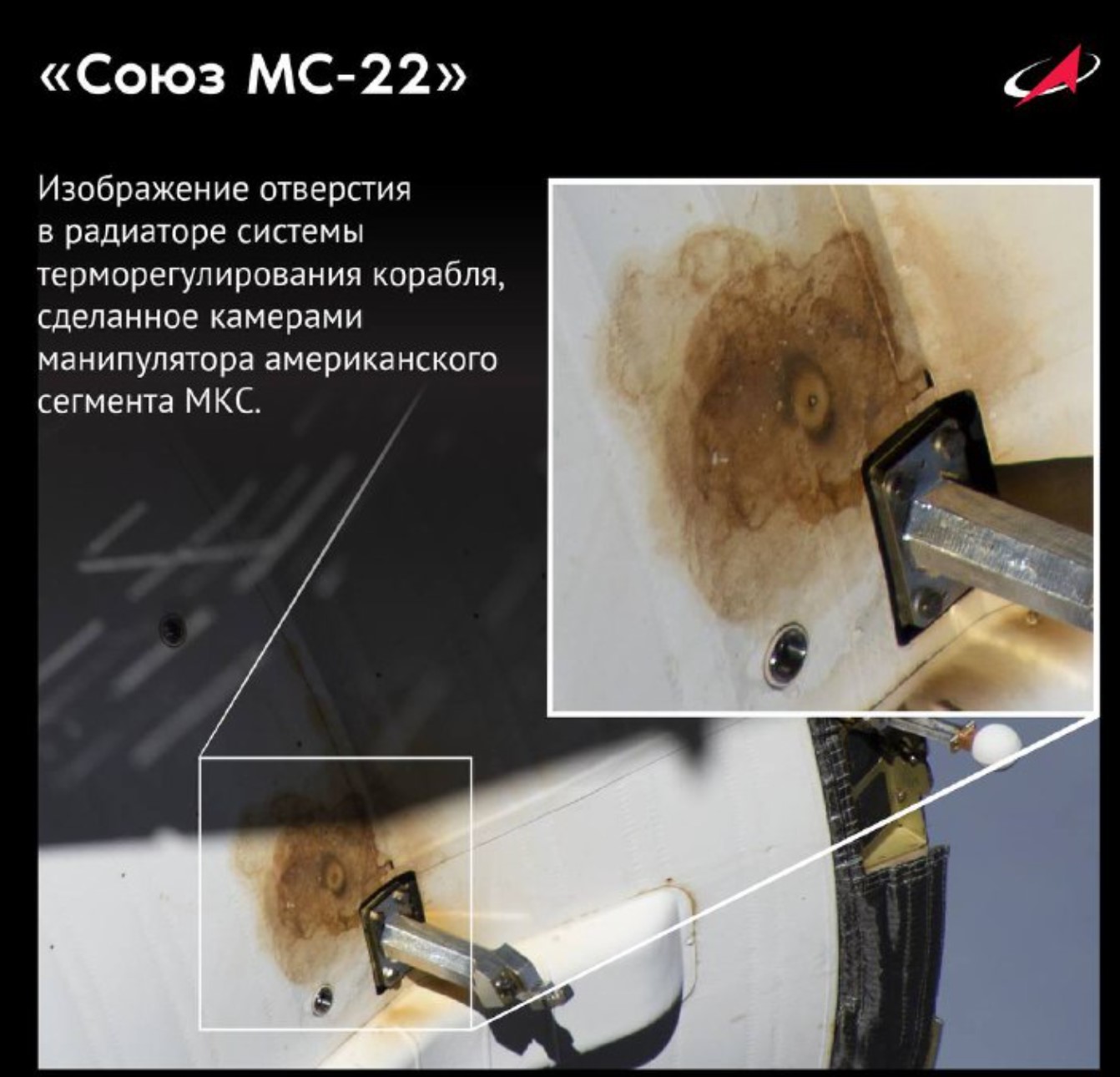Russia to launch replacement Soyuz to space station on Thursday (Feb. 23)
Russia previously said the liftoff would happen in March.

Russia has wrapped up its investigation of two leaky spacecraft and will launch its next Soyuz spacecraft in February after all.
Russia will now launch the Soyuz MS-23 spacecraft to the International Space Station (ISS) on Thursday (Feb. 23) after announcing days ago it would delay the event into March. The decision was announced on Telegram; docking is expected about two days later, according to Russian federal space agency Roscosmos. The new date puts the launch of the replacement Soyuz just two days ahead of the launch of the SpaceX Crew-6 mission to the space station.
Soyuz MS-23 will launch uncrewed from the Russia-run Baikonur Cosmodrome in Kazakhstan Thursday at 7:24 p.m. EST (0024 GMT or 3:34 a.m. local time Friday, Feb. 24). NASA will start carrying coverage live on NASA Television roughly 24 minutes beforehand, which we will run here at Space.com.
Following its docking with the space station, MS-23 will be the new ride home for the MS-22 crew, which includes cosmonauts Sergey Prokopyev and Dmitry Petelin and NASA's Frank Rubio.
Related: Russia to launch new Soyuz capsule to replace leaky spacecraft on space station
Russia's Soyuz issues began on Dec. 14 when another Soyuz, MS-22, sprung a coolant leak and lost all of it to space. Roscosmos, the Russian federal space agency, deemed the craft only fit to use in case of true emergency and attempted to accelerate the launch of MS-23 by several weeks to Feb. 19.
That plan was derailed after a Progress-82 freighter, docked to the ISS since October, experienced its own coolant leak on Feb. 11 and forced a new investigation. The Progress undocked without incident on Friday (Feb. 17), allowing Roscosmos to review new footage taken by the Expedition 69 crew as the cargo ship departed.
Breaking space news, the latest updates on rocket launches, skywatching events and more!
Roscosmos has now determined the two events were due to unrelated micrometeoroid strikes, and chose to reschedule the launch of MS-23 again to Thursday to provide a secure ride home for its Soyuz crew as soon as possible.
On Telegram, Roscosmos said the Progress and Soyuz events were caused by unrelated meteoroid strikes rather than internal failures. MS-22 is still docked to the ISS as an emergency option for the crew for a little while longer.
Roscosmos published most of the rationale for its Soyuz launch on its own website, which is blocked in most Western countries in the wake of Russia's unsanctioned invasion of Ukraine almost a year ago on Feb. 24, 2022.
Roscosmos elected not to immediately upgrade the shielding on Soyuz or Progress spacecraft given that they deem the chances of micrometeoroid strike unlikely, according to Russian space enthusiast Katya Pavlushchenko, who could view the website and is fluent in Russian and English. (Future spacecraft variants, however, could get more protection, she added.)
"According to the results of the ground experiment, the possibility of a radiator hit by space debris is considered unlikely, taking into account the direction of movement and the particle's speed, as well as the absence of possible candidates in space debris catalogs," Pavlushchenko wrote on Twitter.
Roscosmos had briefly considered launching the uncrewed Soyuz with a cosmonaut on board, added Pavlushchenko, "but the modification would take too long." The change in flight schedules means the Soyuz MS-22 crew, which will be assigned to MS-23 when it arrives, will be in space for a year until September, double their original manifest of six months.
Elizabeth Howell is the co-author of "Why Am I Taller?" (ECW Press, 2022; with Canadian astronaut Dave Williams), a book about space medicine. Follow her on Twitter @howellspace. Follow us on Twitter @Spacedotcom or Facebook.

Elizabeth Howell (she/her), Ph.D., was a staff writer in the spaceflight channel between 2022 and 2024 specializing in Canadian space news. She was contributing writer for Space.com for 10 years from 2012 to 2024. Elizabeth's reporting includes multiple exclusives with the White House, leading world coverage about a lost-and-found space tomato on the International Space Station, witnessing five human spaceflight launches on two continents, flying parabolic, working inside a spacesuit, and participating in a simulated Mars mission. Her latest book, "Why Am I Taller?" (ECW Press, 2022) is co-written with astronaut Dave Williams.

